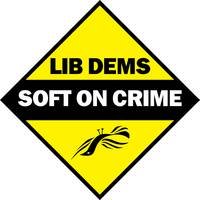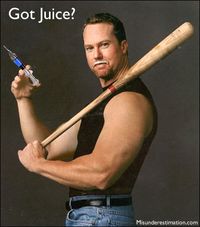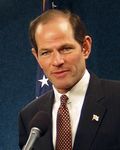Think of this as Volume 15, Number 17 of A-Clue.com, the online newsletter I've written since 1997. Enjoy.

It worked. America now has a bigger percentage of its people in jail, or under the direct control of courts, than any other country. We execute more people than China (far more), and our police have many tools that violate the spirit, if not the actual language, of the 4th, 5th, 6th and 8th amendments.
(NOTE: The execution numbers actually favor China, although our incarceration rates are still highest on an absolute and per-capita basis.)
Despite what anyone in the media may tell you, street crime is down. Total crimes peaked in 1991. They're now down by nearly a third, even though we have 70 million more people, even despite the terrible economy.
The War on Street Crime has been won.
But there has been a wave of much bigger crimes throughout our society. These are crimes conducted by business, often with just a pen. The economic crash of 2008 was caused by such crimes. Everyone suffered from it – except for the criminals.

The present crime wave has the same cause as the earlier one. Not enough cops, not enough enforcement. A feeling of impunity on the part of the criminal class. Apathy on the part of the public.
Politically, of course, things are very different. Because when it comes to the current crime wave, it's Republicans who are most soft on crime.

Of course, that won't get McGwire what he most wants, enshrinement in the Hall of Fame. It's doubtful any of the last era's steroid sluggers will ever be enshrined, nor will Roger Clemens. We know better than that, because theirs was a street crime.
Why don't we have that attitude with financial crime? Or industrial crime? When someone deliberately uses language you can't understand to take your home from you, that's fraud. It's not caveat emptor, it's simple theft. And the counts can add up.
In the cases of industrial crime, where workers are killed because safety procedures weren't followed, or consumers are sickened and die because companies got lazy, the crime wave has a different cause. A lack of cops.

So why is it when conservatives or businessmen decry “the cost of regulation” this isn't pointed out? Why is it that they're not called what they are, soft on crime? Why aren't we holding rallies saying that these people are coddling criminals, shielding them, by preventing the hiring of cops, keeping them from doing their job through control of the police agencies they work for, or simply defining down the definition of crime?
I know. A lot of liberals have made this argument before. Trouble is they didn't frame it properly. Because it's not about regulation, burdensome or otherwise. It's about law enforcement. It's about preventing big crimes by cracking down on the little ones, or the actions that might lead to crime – the broken window theory.
The windows are broken, the criminals are ravaging our economy, and they've corrupted every agency of government. Where is the outrage?
Most of what our regulatory agencies do is crime prevention. When the FDA sends people into an slaughterhouse or a packing plant to make sure things are done the right way, they're providing a valuable service to the business. They're keeping it from killing people. The same is true of all industrial regulation.

When people who ignore regulations and kill people aren't brought to the criminal bar, when people like Don Blankenship are allowed to get away with murder, it's like having Pablo Escobar walking down your city street. (And judging from this picture, taken at the height of Escobar's power, the physical relationship with Blankenship is pretty awesome.)
Only no one says so.
So this new War on Crime doesn't start with regulation. It starts with the criminal law. People have to go to jail. Actions like these need to become crimes, crimes have to be prosecuted, and only then will we have a chance to enact regulations again, because business will demand it, fearing the consequences of actions they may not always be on top of.

Preferably some who aren't seeing prostitutes on the side.
Hopefully we won't have long to wait.











“We execute more people than China (far more)”
You might want to recheck your figures. It is the opposite actually, China executes FAR more people than the US, magnitudes more. The US executed only 46 or so people in 2010. Whereas in China no official number is given but Amnesty International estimates that 1,700+ people were executed based on available information. And this is just a conservative estimate, the real number is likely to be much higher.
John Gantz
iPod docking station with speakers
“We execute more people than China (far more)”
You might want to recheck your figures. It is the opposite actually, China executes FAR more people than the US, magnitudes more. The US executed only 46 or so people in 2010. Whereas in China no official number is given but Amnesty International estimates that 1,700+ people were executed based on available information. And this is just a conservative estimate, the real number is likely to be much higher.
John Gantz
iPod docking station with speakers
On executions you’re right. My apologies.
But guess who has the most executions per capita? The Bahamas with Singapore second http://www.nationmaster.com/graph/cri_exe_percap-crime-executions-per-capita. China is 14th, we’re 20th.
It’s incarceration where we’re #1. http://www.nationmaster.com/graph/cri_pri_per_cap-crime-prisoners-per-capita Right now 7 in every 1,000 Americans are behind bars, the highest rate in the world by far.
The only way even Reason can argue for our nonsensical justice policies is to claim that China lies http://reason.com/blog/2008/02/29/are-us-incarceration-policies. The U.S. Justice Department estimated we had 2.2 million prisoners, and China had 1.5 million, at the end of 2006. http://www.naturalnews.com/021290.html
On executions you’re right. My apologies.
But guess who has the most executions per capita? The Bahamas with Singapore second http://www.nationmaster.com/graph/cri_exe_percap-crime-executions-per-capita. China is 14th, we’re 20th.
It’s incarceration where we’re #1. http://www.nationmaster.com/graph/cri_pri_per_cap-crime-prisoners-per-capita Right now 7 in every 1,000 Americans are behind bars, the highest rate in the world by far.
The only way even Reason can argue for our nonsensical justice policies is to claim that China lies http://reason.com/blog/2008/02/29/are-us-incarceration-policies. The U.S. Justice Department estimated we had 2.2 million prisoners, and China had 1.5 million, at the end of 2006. http://www.naturalnews.com/021290.html